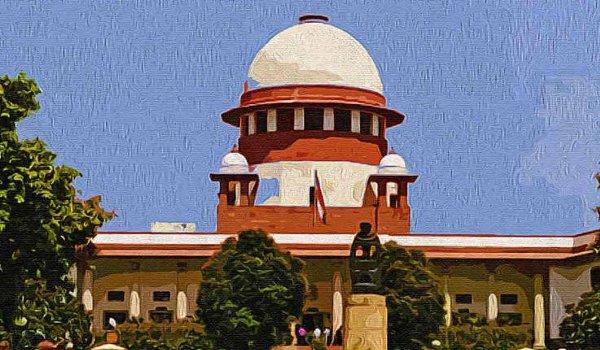Supreme Court Appoints Independent Expert Committee to Probe Pegasus Snooping

The Supreme Court on Wednesday ordered the appointment of an independent committee of experts to inquire into the alleged use of Israeli spyware Pegasus for surveillance of Indian citizens.
The judgement passed by a three-judge bench headed by Chief Justice NV Ramana said the court passed the order because of “compelling circumstances” including alleged impact on right to privacy and freedom of speech; entire citizenry being affected by the alleged snooping; involvement of foreign parties and their possible role in placing Indian citizens under surveillance, etc.
The committee will be headed by former Supreme Court judge RV Raveendran. Among other things, the committee will look into whether the spyware was used on phones or other devices belonging to the citizens of India, if any governmental agency has used the Pegasus suite of spyware on the citizens, and under what law, rule, guideline, or protocol, the LiveLaw reported.
The apex court has asked the committee to investigate the matter expeditiously and listed the matter after eight weeks.
The committee will also make recommendations regarding the introduction of new law or changes in existing law on surveillance and the improvement of protecting citizens’ right to privacy. It will also recommend ways to enhance the nation’s cyber security. Among other things, recommendations are also sought regarding the establishment of an independent agency to investigate cyber security breaches, vulnerabilities and threat assessment, according to LiveLaw.
A bench comprising Chief Justice N V Ramana and Justices Surya Kant and Hima Kohli had reserved order on September 13, saying it only wanted to know whether or not the central government used the Pegasus spyware through illegal methods to allegedly snoop on citizens.
Passing the order, the court said, “In a democratic country governed by the rule of law, indiscriminate spying on individuals cannot be allowed except with sufficient statutory safeguard…” This is an important concern for press freedom, which is a vital pillar of democracy, the court said.
The Supreme Court bench acknowledged that the Centre could refuse to give information in case national security is involved, but underlined that just the invocation of national security did not render the court into “a mute spectator”. “…this does not mean that the State gets a free pass every time the spectre of "national security" is raised,” the court said.
The court also observed that specific material placed by the Petitioners had placed on record prima facie merited the court’s consideration. It also said that the Centre was given adequate time to disclose all information regarding the pegasus attack since 2019, but it only filed a limited affidavit, which shed no light on the queries. “There has been no specific denial of any of the facts averred by the Petitioners by the Respondent-Union of India. There has only been an omnibus and vague denial in the ‘limited affidavit’ filed by the Respondent-Union of India, which cannot be sufficient”, the court observed in the judgment.
SC Refers to 'Orwellian Concern'
The Union Government’s appeal to let it constitute a committee was rejected by the SC as the Centre probing the allegations by itself would violate the judicial principles against bias.
The apex court also observed that the petitions filed in the matter raised “Orwellian” concerns regarding the alleged use of technology to hear or see what another is hearing or seeing through their devices. Quoting famous English novelist George Orwell, the court said, “If you want to keep a secret, you must also hide it from yourself.
Here, “Orwellian” refers to a highly-surveilled, totalitarian state, which is antithetical to the welfare of a free and open society.
“In this context, this court is called upon to examine an allegation of the use of such a technology, its utility, need and alleged abuse. We make it clear that our effort is to uphold the constitutional aspirations and rule of law, without allowing ourselves to be consumed in the political rhetoric,” the Supreme Court bench said. It also reminded that even though technology was a useful tool to improve people’s lives, it could also be used to breach the privacy of an individual.
The top court said that historically, the origin of privacy rights has been ‘property centric’ rather than people-centric, as seen in both USA as well as England. However, in India, privacy rights could be traced to the ‘right to life’ enshrined under Article 21 of the Constitution, the court added.
(With PTI inputs)
Get the latest reports & analysis with people's perspective on Protests, movements & deep analytical videos, discussions of the current affairs in your Telegram app. Subscribe to NewsClick's Telegram channel & get Real-Time updates on stories, as they get published on our website.
























